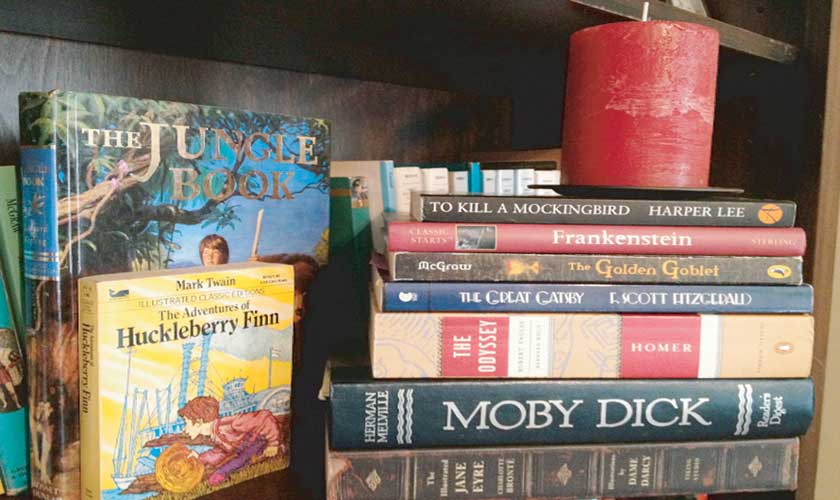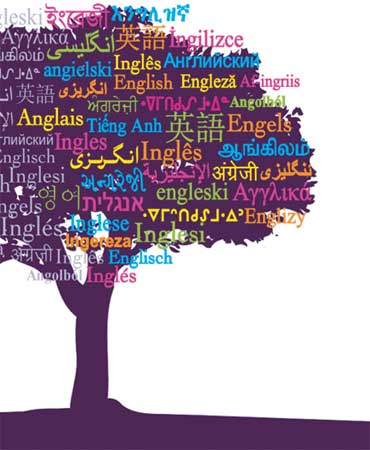“I can’t believe that I am majoring in English. I have successfully completed my admission process and classes are starting soon in January so now I can pursue my dream of becoming a novelist.” Sarah felt extremely proud of herself while saying these words to her friend.
“I can’t believe that I am majoring in English. I have successfully completed my admission process and classes are starting soon in January so now I can pursue my dream of becoming a novelist.” Sarah felt extremely proud of herself while saying these words to her friend.
If I dig down into the time when I stepped into the English department, I also find myself hooked to beautiful dreams but at the same time unknown fears lurked in my heart. Why was I fearful? Because I had given in to some common misconceptions and was uninformed about what English had to offer me.
It is very disappointing to hear people saying, “What would you exactly be doing after majoring in English? Teach English; what else can you do with a degree in English, right?”

This attitude is just an attempt to underestimate the horizon of English as a subject. It is precisely incorrect that an English major only ends up teaching English. This is also one of the reasons why English majors, who are not genuinely interested in teaching, actually pick up teaching as their profession. Anyway, the value of teaching cannot be doubted, especially teaching an international language in a multilingual country could be one great option. However, it is not the only one as there is so much one could do after studying English. One could take several unique paths; there are so many noticeable personalities in media, politics and business who had English as their major. For instance, Andrea Jung studied English as her core subject and managed to become the CEO of various business firms, like AVON and Grameen America. Perveen Shakir, a highly regarded Urdu poet, and Barbara Walters, a famous broadcast journalist, also studied English. Majoring in English would not in any way restrict the career choices you make. One of my friends, after completing her Masters in English worked as a teacher, then as an academic counselor and is now studying law. She says, “Whatever I learned during my time in the English department is paying off here as well; I stand out in my class. My law teachers say I critically solve problems and my ideas have clarity and logic.”
We all have a bunch of friends, especially the ones interested in science, engineering or business, who keep reminding us to connect things with the practical world. Some say, “You study medicine, you treat the patients or you study accounting, you run a bank but how would you apply Shakespeare’s sonnets or John Keats romanticism to this practical world?” Actually, to some people, English sounds quite impractical but the reality is that many of us just do not understand what valuable and practical skills we develop while studying English. Just to mention a few things, the ability to extract ideas, think and read critically, analyse, critique and solve problems is what we acquire while studying English as a major. Aren’t these skills required in our ‘practical’ lives (read jobs)?
Coming to a very obvious thing that unfortunately, many prospective candidates are not aware of precisely is what they would really be doing in their four-year English programme. Many students have this illusion that they would learn English language and perfect grammar while studying English in the university; they think specializing in English would be a four-year long language course. In fact, students wishing to major in English are expected to have command over the language in order to comprehend advance text and communicate ideas. To ensure that the students who get enrolled in the English department have good language skills, some universities have made it compulsory for the candidate to pass an entry test to prove their eligibility for the department. At least, this misconception is dismissed and students come to English department with open and clear mind.
We all are aware of the importance of English language; around 380 million people speak English as their first language, two-thirds of the worlds’ population speak English as a second language, it is the language of communication, internet, diplomacy, politics, business and education. From all the Hollywood blockbusters to majority of the popular fiction read all over the world, everything is in English.
The scope of majoring in English stems from the value it carries as a global language and from the important role it now plays in the life of everybody on this planet. English can’t be ignored. So, attaining mastery in the use of language really helps in terms of the array of fields they are subsequently exposed to. An imaginative avid reader can become a novelist, a person proficient in a language other than English can become a translator, a person with sharp analytical skills can become a political analyst or a fashion analyst. The flexibility of English makes it possible for the students to fulfil their dreams and do what they love.
English is categorized into two broad areas: literature and linguistics. In short, studying literature means to learn how to critically read, analyse and decode the text, especially classical fiction, poetry, plays and essays, for extracting themes and underlying meanings through different strategies. Linguistics deals with the scientific study of language. In this, one would learn, for instance, about the sound system (phonology), how words are arranged into sentences (syntax) and how words are given meaning (semantics).
What further adds to the charm of majoring in English is its interdisciplinary nature. I also got a bit frustrated with the idea of reading books and discussing them, but once I was into it, I experienced it myself that English is not just English; it is an opportunity to explore psychology, society, media sciences, culture and history. I remember how interesting it was to apply Sigmund Freud’s psychoanalytical approach to Wuthering Heights. Then, I also got a chance to explore British history and culture. These are just few examples of how English relates to more than one branch of knowledge and creates space for the students with varying interest. Further, studying courses like, Language and gender, History of English literature, Translation studies, Media discourse analysis and World Englishes would be an opportunity to discover new disciplines and see how language has been a crucial part of those disciplines. All those who think of English as dull and impractical are proved wrong as English could be as exciting as any other subject.
How can I not mention how much I cherish the time I spent in the English department reading Emma, Robinson Crusoe, Silas Marner, King Lear, Tess of the d’Urbervilles? While studying English, students are made to read a variety of texts and are encouraged to go beyond the syllabus. In this way, many students discover their love for reading while studying English which eventually helps them out in everything.
“I entered University to Major in Economics and took English literature as an optional course. Literally, after just taking few literature classes, I made up my mind to switch. Next year, I began studying English as my core subject. After studies, I immediately went for my dream job: teaching. I read stories, unfold meanings, talk about them and motivate my students to write their own. I am thankful for everything majoring in English has taught me. I can read fast and think critically, I can communicate ideas logically and effectively, I am able to convince people. At the end of every day, I feel accomplished and successful. I really believe that studying English is worth it,” an English major shared her success story with a group of first year students.